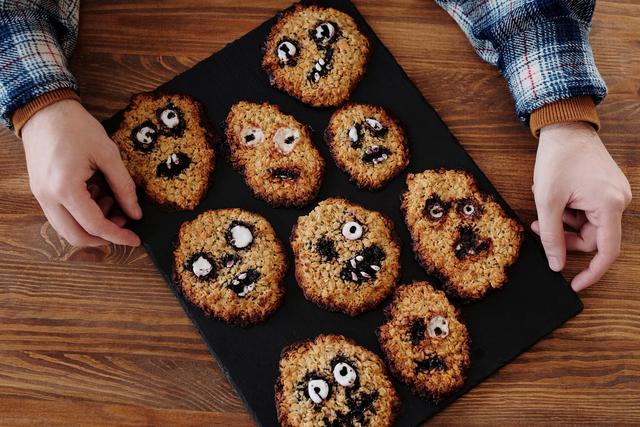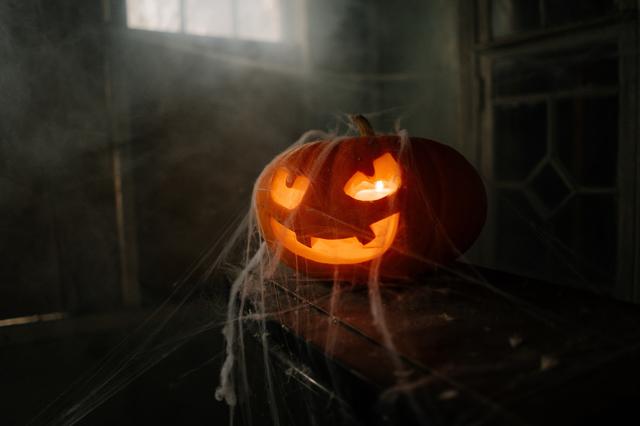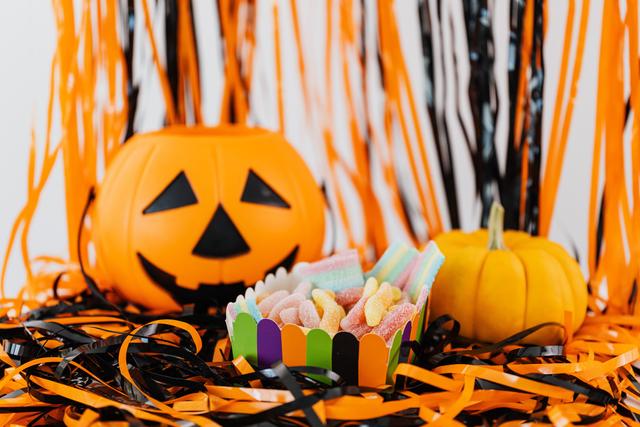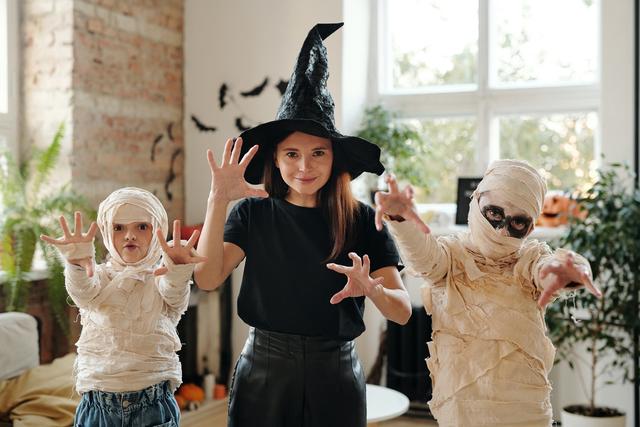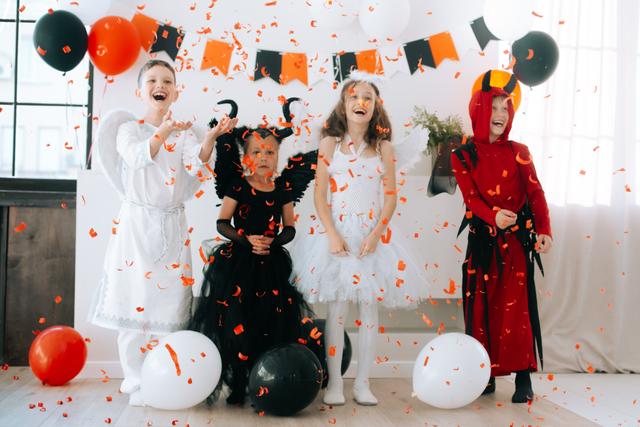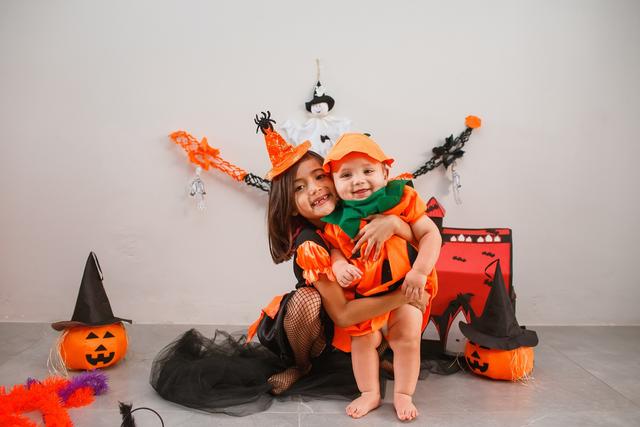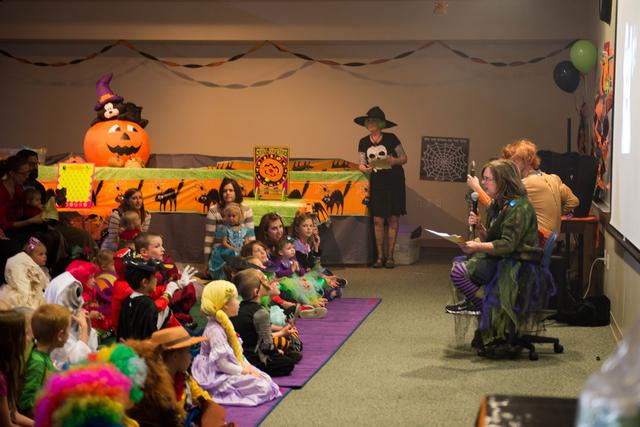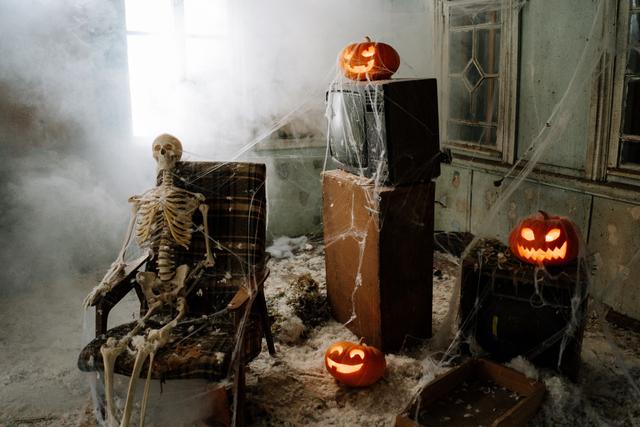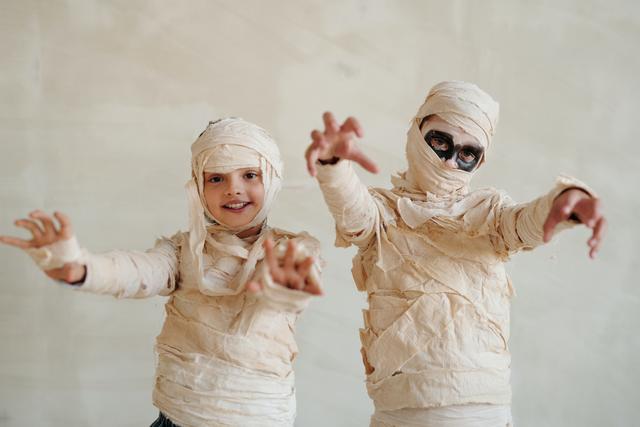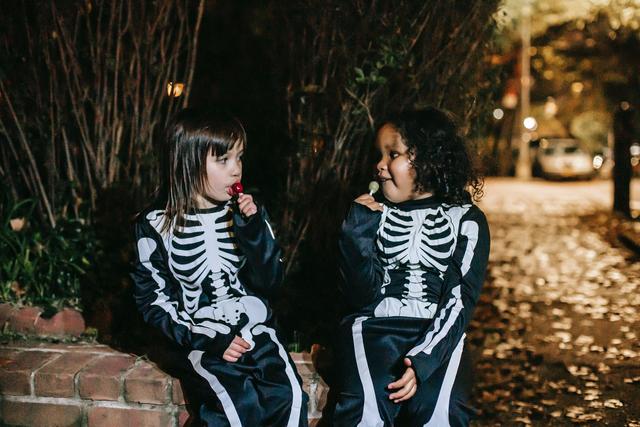Halloween Articles
Halloween For Kids In The UK
Halloween in the UK is a vibrant and eagerly anticipated event for children, drenched in rich traditions and communal celebrations. Originating from the ancient Celtic festival of Samhain, Halloween today has evolved from eerie superstitions into a festive time of joy and creativity for the younger crowd. As the night when the veil between the living and the dead was believed to thin, modern Halloween retains the theme of the supernatural, but with a much more whimsical spin.
The blend of old traditions with new involves children dressing up in a variety of costumes, ranging from spooky to imaginative, and taking part in the popular custom of trick-or-treating. This event sees kids travelling door to door, collecting sweets and treats from neighbours. Beyond just gathering confections, Halloween events such as pumpkin carving contests, apple bobbing, and attending costume parties foster community spirit and offer fun, safe venues for celebration.
Historically speaking, the transformation of Halloween in the UK took root more solidly in communal consciousness in the late 19th and early 20th centuries. Initially intertwined with remembrance of the dead through festivals like the Roman Feralia and the Christian All Saints' Day, the focus gradually shifted towards more lively and child-friendly activities.
Today, on Halloween night, streets come alive with the laughter and chatter of children. Homes and public spaces are decorated with iconic imagery like jack-o-lanterns, cobwebs, and witches, setting a playful yet spooky scene. From urban centres to rural neighbourhoods, Halloween offers a night of light-hearted fright and thrilling fun, making it one of the most beloved times of the year for British children.
The Benefits of Halloween
Halloween offers a unique mix of festive fun and beneficial health activities for children in the UK. During this jovial time, kids participate in trick-or-treating, which is not only exhilarating but also promotes physical activity. As they walk from house to house collecting treats, children engage in moderate physical exercise, an essential part of combating sedentary lifestyles. This activity helps to foster stamina, agility, and overall physical health.
In addition to physical benefits, Halloween stimulates creativity and imagination in children through costume design and pumpkin carving. These activities encourage artistic expression and problem-solving skills. Moreover, Halloween events offer a fantastic opportunity for socialisation, as children interact with peers and community members, enhancing their social skills and emotional intelligence.
Moreover, engaging in Halloween celebrations can be a practical lesson in nutritional awareness. Children learn to identify and sort various types of treats, which can play a role in discussions about food choices and healthy eating habits. Furthermore, dressing up and participating in community activities can significantly boost a child's confidence and self-esteem, making them feel valued and enhancing their ability to express themselves in public settings. Thus, Halloween is not only a time for spooky fun but also supports essential aspects of children's health and development.
FAQs
What is the origin of Halloween in the UK?
Halloween traces back to the ancient Celtic festival of Samhain, celebrating the end of the harvest and the start of winter. The Celts believed that the boundary between the living and the dead blurred on this night. As the tradition evolved, the Romans and later Christian influences shaped it into the Halloween we know today, celebrated on October 31st, the eve of All Saints' Day.
Why is Halloween important for children's social development?
Participating in Halloween activities like trick-or-treating helps children build social skills by interacting with peers and adults in their community. It's a valuable opportunity for kids to engage in social settings outside their usual circles, enhancing their communication and interpersonal skills.
What are the benefits of costume dressing and pumpkin carving for children?
Dressing up and pumpkin carving are activities that foster creativity and imagination in children. These activities help in developing fine motor skills and artistic expression, encouraging kids to think innovatively and solve problems (like creating a costume or carving design). Also, sharing their creations can boost their confidence and self-esteem.
How can parents manage their children's candy intake during Halloween?
Parents can manage candy consumption by setting limits on the amount of candy children can eat each day and encouraging them to choose their favourites while possibly sharing the rest. Educating about nutritional values and healthy eating choices can also help children make better decisions about their treats.
Are there alternative activities to trick-or-treating for celebrating Halloween?
Yes, for families looking for alternatives to trick-or-treating, many communities offer events like costume parties, pumpkin carving contests, or Halloween-themed parades. Additionally, families can organise a Halloween scavenger hunt or a spooky movie night at home, ensuring kids still enjoy the festivity in a safe and controlled environment.
